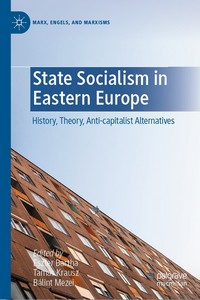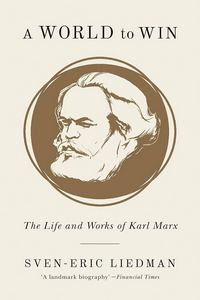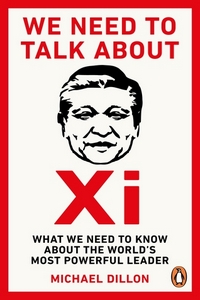Book reviews – Bartha-Krausz-Mezei, Liedman, Dillon, Margolin
 Unsocialist
Unsocialist
State Socialism in Eastern Europe: History, Theory, Anti-capitalist Alternatives. Edited by Eszter Bartha, Tamás Krausz and Bálint Mezei. Palgrave Macmillan, 2023. 356pp.
The term ‘State Socialism’ in the title of this book is used to refer to the system that existed in the Soviet Union and the regimes of the Soviet bloc from the late 1940s until the whole edifice crumbled from 1989 onwards. Though it is clear that this system was not socialism as we would understand it but rather repressive state capitalism masquerading as socialism, this has not prevented many academics who study the history of that era from continuing to refer to it as socialism and indeed as ‘really existing socialism’. And this is precisely what we find in this collection of 14 essays, which focus predominantly on aspects of how those regimes, especially Hungary, were organised in the period when they were part of the Soviet bloc. The way the editors describe it is as an attempt ‘to address the long theoretical, conceptual and political debate on the interpretation of “actually existing socialism” in the Soviet Union and Eastern Europe’.
But while such debate may give academics something to occupy their minds with, in reality the single most important thing to know is that the regimes in question were not in any sense socialist but simply represented a different – and invariably more repressive – way of managing the buying and selling system known as capitalism. That system, wherever it exists or has existed, is one of money and wages, economic inequality, and a small class of employers ruling the roost over a large class of employees, even if this consideration seems far from the minds of most of those contributing to this volume. The chapter by Susan Zimmerman on work and gender politics in ‘State-Socialist Hungary’, for example, while clearly the product of comprehensive and painstaking research, confines itself to description and analysis of how those particular aspects of capitalism manifested themselves in post-war Hungary and in no way challenges the idea of whether ‘socialism’ can exist within the framework of an economic system of buying and selling and production for the market. In his essay on Hungary between 1963 and 1985 (sometimes referred to as the period of ‘goulash Communism’), Bálint Mezei discusses what he calls ‘Hungary’s third road experiment of socialism’. Another chapter, jointly written by the editors as an introduction to the anthology and entitled ‘From Socialism to Neo-Liberalism: Lessons from Eastern Europe and Hungary’, states the book’s intention ‘to draw a historical lesson from the state socialist experiment in Eastern Europe and Hungary, which can be instructive in the search for an alternative to the global neoliberal capitalism’. Yet this too, despite its title, shows few signs of appreciating that the main lesson to be learned from the topic under discussion is that the passage from one system to another in Eastern Europe with the fall of the Soviet bloc was in fact a passage from one kind of capitalism (state capitalism) to another (private capitalism) and that the only viable alternative to either cannot be some form of ‘socialist state’, since socialism is by definition a worldwide, stateless society as well as one without classes, markets and contractual relations.
Close to 40 years ago (and so before the collapse of the Soviet-backed regimes of Eastern Europe), a book entitled State Capitalism: the Wages System Under New Management was published by Palgrave Macmillan, the same publisher as for the volume currently under review (State Capitalism – libcom.org). It stated the unerring truth that ‘private capitalism and state capitalism are equally suitable institutional arrangements for allowing capital to exploit wage-workers’, a truth vindicated by history since that time yet still not fully grasped by many academics. In addition, as an alternative to either form of capitalism, the book’s authors, Adam Buick and John Crump, also stated the need for a society that abolishes both the wages system and the production of goods and services for the market, replacing it with a system of voluntary cooperative work and production for use. The collection of essays currently under review also claims to ‘contribute to the discussion about anti-capitalist alternatives’, but its overwhelming focus is on the organisational variants of capitalism and, looking forward, with a nod to perhaps minor changes to the ‘neoliberal’ regimes that have now taken over that may allow a few more crumbs to fall from the table. A look back at Buick and Crump’s analysis would surely help the contributors to this volume to see the wood for the trees.
HKM
 Not reliable
Not reliable
A World to Win. The Life and Works of Karl Marx. By Sven-Eric Liedman. Verso. 2018.
Liedman is a retired professor of the history of ideas at the University of Gothenburg. This 700-page intellectual biography of Marx was first published in Swedish in 2015. As a description of the development of Marx’s ideas, linked to contemporaneous economic and political events and his changing personal circumstances, it is interesting and informative enough. When, however, it comes to discussing Marx’s economic theory it is far from reliable.
Liedman has Marx as a crude underconsumptionist who explained crises as resulting from the total market-price of what is produced inevitably exceeding, from time to time, total paying consumer demand, resulting in a glut which has to be cleared before production can resume, leading to the next glut. He also sometimes confuses ‘constant’ and ‘fixed’ capital and even ‘variable’ and ‘circulating’ capital.
As a historian of political philosophies Liedman is particularly interested in Marx’s theory of ‘the fetishism of commodities’ (his view that where there is widespread production of articles for sale — commodities — the producers come to be dominated by the movement of their own creation that commodities are) but a passing remark later shows that he hasn’t even understood that Marx envisaged the abolition of commodity-production:
‘Luxemburg can be said to have been correct on another point in relation to Lenin and his followers: in the future society Marx sketched out, there is a market for goods and not a completely regulated planned economy. But the market is equal, in contrast to the kind that characterised capitalist society’ (pp 426-7).
Marx as a ‘market socialist’! Incredible. In fact, the section of Capital on the fetishism of commodities appears before Marx introduces the concept of capital and capitalism; it assumes a market economy with no exploitation of the producers.
Luxemburg too envisaged future society as a ‘natural economy’ where there would be production directly for use and no longer for sale. He also has Rosa Luxemburg (p. 594) as a member of the Reichstag in 1914 when women in Germany didn’t even have the vote.
ALB
We Need to Talk About Xi: What We Need to Know About the World’s Most Powerful Leader. By Michael Dillon. Ebury Press/Penguin £10.99.
Xi Jinping is general secretary of the Chinese ‘Communist’ Party, president of China and chair of the country’s Central Military Commission. This combination certainly makes him one of the most powerful people on the planet, and here Michael Dillon summarises his personal history and political policies, against the background of developments in China, especially since the death of Mao Zedong. Little is known of his private life, but who cares?
Born in 1953, Xi gradually worked his way up through CCP ranks, working in various provincial posts. In 2002 he became a member of the Central Committee, and in 2007 of the Politburo Standing Committee. He became general secretary of the party in 2012, and his five-year term was renewed in 2017 and again in 2022. The expected practice was for the general secretary to serve two such five-year terms before stepping down, but Xi has overturned this. He is apparently seen by others in ruling circles as a ‘safe pair of hands’, though he is also less collegial and more authoritarian.
Dillon says that Xi has reversed much of the modernisation of the Chinese economy begun under Deng Xiaoping, though without saying a great deal about this. And he has lost support among ‘captains of industry’, who see him as not sufficiently friendly to business. A few years ago he announced a clampdown on the billionaires with plans to ‘regulate excessively high incomes’ (NBC News, 5/9/21), though it is not clear that this has had any real effect.
The authoritarian side has been made plain not just in the general attacks on dissidents but in events in Hong Kong and Xinjiang. In both cases, Xi has run things behind the scenes, making local leaders appear responsible. In Hong Kong, for instance, a man was recently jailed for fourteen months for wearing a T-shirt with a supposedly seditious slogan on it. Many Uyghurs in Xinjiang have been sent to ‘re-education camps’ as they are euphemistically called, in order to suppress demands for independence for the region. Finding information about developments there is difficult, but Dillon states that there has been much damage to social and religious networks, and also to the economy, with many workers being removed from their posts.
Allegedly Xi has less interest in international affairs, though the Belt and Road initiative has been an expensive and potentially influential policy. His extremely vague China Dream may see the country as a global power like the US, but clearly he is primarily interested in maintaining his own power and that of all those who rule China, whether private capitalists or part of the state and party bureaucracy.
PB

Paid to Kill
The Wagner Group: Inside Russia’s Mercenary Army. By Jack Margolin. Reaktion Books £15.99.
Mercenaries have existed through much of history, at least since Ancient Greek times. A well-known recent example was the US firm Blackwater, which has since undergone a number of name changes after some of its employees killed seventeen Iraqi civilians in 2007 (the killers were imprisoned, but later pardoned by Trump). The term ‘private military contractor’ is sometimes used as supposedly sounding less nasty. Here Jack Margolin recounts the history of the Wagner organisation; his work is diligently researched, though quite a lot remains unclear.
The boss of Wagner was Evgeniy Prigozhin, a thug who had spent nine years in prison for theft but later became a business-owner. After the collapse of the USSR, private military companies began to flourish, often doing the dirty work that state security services preferred to steer clear of. Wagner seems to have originated in eastern Ukraine in 2014, as pro-Russia separatists endeavoured to set up regimes not linked to Kyiv, and it may even have been created by the Russian state.
In 2015-6 Wagner soldiers fought in Syria, defending the Assad government on behalf of Russia but also making a profit from Syrian oil. Many front companies were put in place then and later, and an agreement was signed with the Syrian regime that entitled Wagner to up to a quarter of the revenue from oil extracted at sites they had ‘liberated’. Attention was then turned to Africa, fighting and making profits in Sudan and then the Central African Republic with its sizeable mineral resources. Wagner established a regional hub in Libya and in 2022 its fighters were responsible for a massacre at Moura in Mali, where at least five hundred people were killed and women and girls were raped. It is not possible to put a figure on Wagner’s income from government payments (including the Russian state) and its profiting from resource exploitation.
Wagner probably became most notorious for its part in the Russian invasion of Ukraine from 2022, though it took a few weeks for it to play any role. It was allowed to recruit from prisons, promising amnesty to those who ‘volunteered’. They had perhaps five thousand fighting in Ukraine, most of them convicts, which helped the Putin regime to avoid introducing conscription. Deserters were killed, often with a sledgehammer, which became a kind of symbol of Wagner.
But as the invasion wore on, Wagner and Prigozhin began to distrust Russia’s military leadership, a feeling that was mutual. In June 2023 it was decreed that private military companies would have to sign a contract with the Ministry of Defence. This would put Wagner and others in a subordinate role, Prigozhin refused to accept it, and a mutiny or putsch took place. A convoy of Wagner vehicles and fighters occupied the city of Rostov, in the hope that Russian army soldiers would join them. A march towards Moscow started, but this was abandoned after an intervention from Aleksandr Lukashenko, president of Belarus (though it is not clear precisely what happened). Wagner forces were evicted from Russia and moved to Belarus. Then in August a plane carrying Prigozhin and other Wagner leaders crashed north of Moscow, killing all those on board. According to Margolin, it is pretty likely, though not absolutely certain, that it was Putin who ordered Prigozhin’s assassination, just as other rivals and critical journalists have been killed.
Margolin suggests that embattled governments may well continue to make use of private military forces, as will rebels too, with the state not having an absolute monopoly on violence. But whoever does the fighting, it will be in the interest of rulers or would-be rulers of one kind and another, and it will be ordinary people who will suffer and be killed.
PB
Next article: 50 Years Ago – Whatever happened to ‘full employment’? ⮞

 Dreams and Schemes
Dreams and Schemes